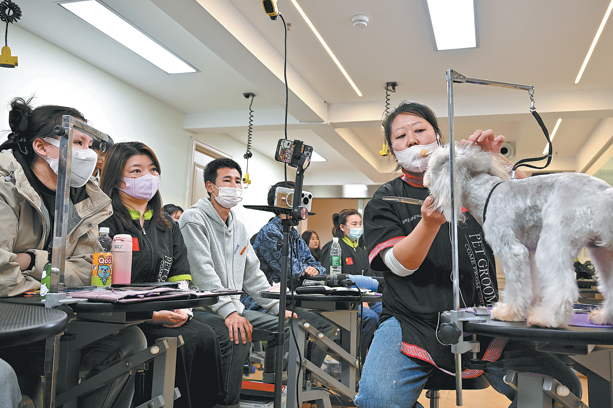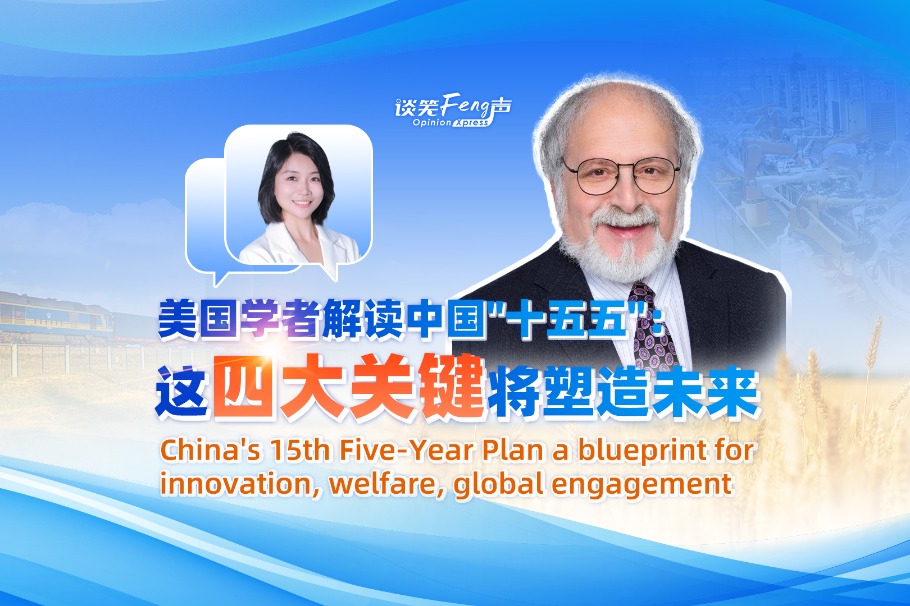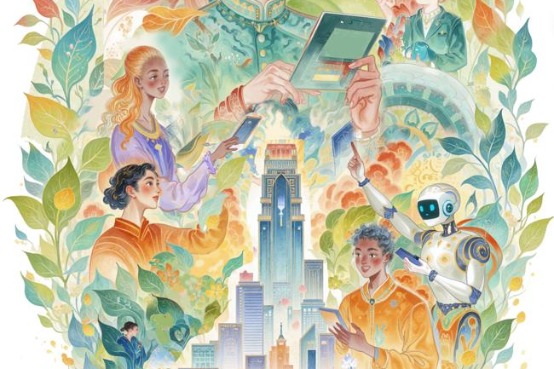AI should build a future where technology serves people


Around the world, governments and cities are grappling with the same challenge: how to ensure artificial intelligence enhances human well-being rather than amplifying risks or inequalities. From Singapore's AI governance frameworks to the European Union's AI Act, policymakers are working out ways to balance innovation with responsibility. China's Interim Measures for the Management of Generative AI Services emphasize transparency and accountability, while Dubai's Ethical AI Toolkit focuses on embedding AI in daily governance. Together, these approaches demonstrate that AI can serve as a force for social good when guided by human values.
Both China and Dubai — China with its scale and research leadership, and Dubai with its agile, citizen-focused deployments — offer distinct pathways. Together, they point to a future where AI is both globally standardized and locally human-centered.
Around the world, AI programs often begin with the technology itself, leaving people to adapt. But Dubai takes the opposite approach. Our AI journey begins with human values — trust, inclusion, fairness, and transparency — and then builds technology to serve the people.
In Europe, regulators are embedding human rights principles directly into AI legislation. In the United States, voluntary AI safety commitments have been signed by leading technology firms.
Dubai's contribution lies in operationalizing these values at the city level, showing how policies translate into everyday citizen experiences, from healthcare to licensing. An example of this is how, last month, a Dubai resident got a driver's licence renewed without filling in a form, waiting in line, or even remembering the expiry date. The city's AI-powered government assistant had already detected the upcoming renewal, processed the application and sent the confirmation, all before the resident even thought about it. This is the everyday reality we are building with artificial intelligence: not technology for its own sake, but technology that anticipates human needs and quietly handles life's daily administrative tasks, the very functions AI was originally designed to automate.
The Dubai State of AI Report 2025 highlights more than 100 cases of AI application in healthcare, mobility, energy and citizen services. Together, these are projected to contribute $64 billion to Dubai's economy by 2030 (Government of Dubai). The real impact, however, is in people's lives. In healthcare, AI is helping detect breast cancer and diabetes earlier while predictive algorithms improve hospital auditing systems. In the energy sector, AI-driven smart grids are managing electricity use more efficiently, reducing costs and environmental impact. And in government, predictive platforms are being piloted to automatically schedule appointments or process renewals, turning governance into an anticipatory rather than reactive experience.
These examples mirror a wider global movement. From China's rapid adoption of AI in healthcare and public services, to Europe's legislative safeguards, and to the US's frontier models, the common goal is to ensure AI creates real social value.
The global debate on AI is filled with concerns about bias, privacy, and accountability. In Dubai, we have addressed these challenges directly. In 2019, we launched one of the world's first ethical AI toolkits, providing developers with open-source standards for fairness, transparency, and accountability. Building on that foundation, our AI policy for government entities requires every AI project to undergo ethical review from procurement through deployment and evaluation.
To ensure innovation remains safe, Dubai also offers regulatory sandboxes where startups test solutions in real-world conditions, while a dedicated AI Board provides oversight. This balance allows us to scale innovation quickly while safeguarding public trust.
AI should not deepen divides. In Dubai, employees whose routine roles are automated are not left behind. Instead, they are reskilled into higher-value positions such as AI oversight and service design.
Internationally, we share our frameworks through the Global Initiative on Virtual Worlds and AI, co-led with the International Telecommunication Union and the United Nations International Computing Centre, which ensures inclusivity is embedded in emerging ecosystems. Through the UN Citiverse Challenge, Dubai is also co-creating AI tools for public services and sustainability.
At the same time, through initiatives showcased at GITEX Global 2025, which is the biggest tech and startup show in the world, Dubai has demonstrated how these principles translate into tangible innovations. New agentic AI systems such as CODAI, a platform developed to elevate AI maturity across government entities, are offering real-time, 360-degree insights into city performance. These systems exemplify Dubai's leadership in AI governance, digital infrastructure and ethical innovation, where transparency, accessibility and inclusivity guide design and deployment.
Dubai's AI journey is built on a holistic model — from regulation and infrastructure to real-world use cases — where the ultimate measure of progress is how much better life becomes for every person. By combining human-centered design with data sovereignty, Dubai's digital ecosystem ensures that AI adoption strengthens public trust, transparency and equity.
Together, these efforts make clear that AI in Dubai is not just about efficiency, but about advancing welfare, equity and access in everyday life — from preventive healthcare and digital governance to sustainability, education, and youth empowerment.
China has taken critical steps with its Interim Measures for the Management of Generative AI Services (effective Aug 15, 2023) and a national AI standardization group, structuring regulation and governance at scale (AI Index report 2025). By 2024, China had filed more than 188,000 AI patents — including nearly three-quarters of the world's generative AI patents — and contributed over 41 percent of global citations in AI research.
While Dubai demonstrates how to implement AI governance at the city level, China's approach demonstrates a national framework. China's Ministry of Science and Technology has established a technical committee for AI standardization to establish cohesive benchmarks and bolster long-term ethical compliance.
China introduced the Global AI Governance Initiative in 2023 to foster global collaboration in AI capacity building. The initiative highlighted the need for inclusive, cooperative international frameworks — a vision that aligns with Dubai's emphasis on multilateral AI stewardship.
We envision Chinese and Emirati researchers co-developing synthetic data frameworks that preserve privacy while enabling innovation, and Chinese startups testing tools in our diverse, globally representative sandboxes. Such collaboration could model a new global standard for responsible, inclusive AI.
The global debate on AI is no longer about "if" but "how." Cities like Dubai illustrate the promise of AI in everyday governance. China's frameworks highlight the importance of scale, research, and standardization. The European Union underscores the role of legislation, while the United States contributes through frontier models and investment leadership. By learning from one another and building bridges, we can ensure that AI enriches lives across geographies, cultures, and systems.
The question before us is not whether AI will change our lives, it already has. The real question is how. Will it dictate our choices, or will we guide it with our values?
Around the world, many cities and nations are ensuring that AI serves humanity's highest values. Dubai and Beijing stand out as examples of how innovation, when guided by conscience, can enrich lives, safeguard trust and ensure that progress remains unmistakably human.
The author is chief executive of Dubai Data & Statistics Establishment, Digital Dubai.
The views don't necessarily reflect those of China Daily.
If you have a specific expertise, or would like to share your thought about our stories, then send us your writings at opinion@chinadaily.com.cn, and comment@chinadaily.com.cn.


































